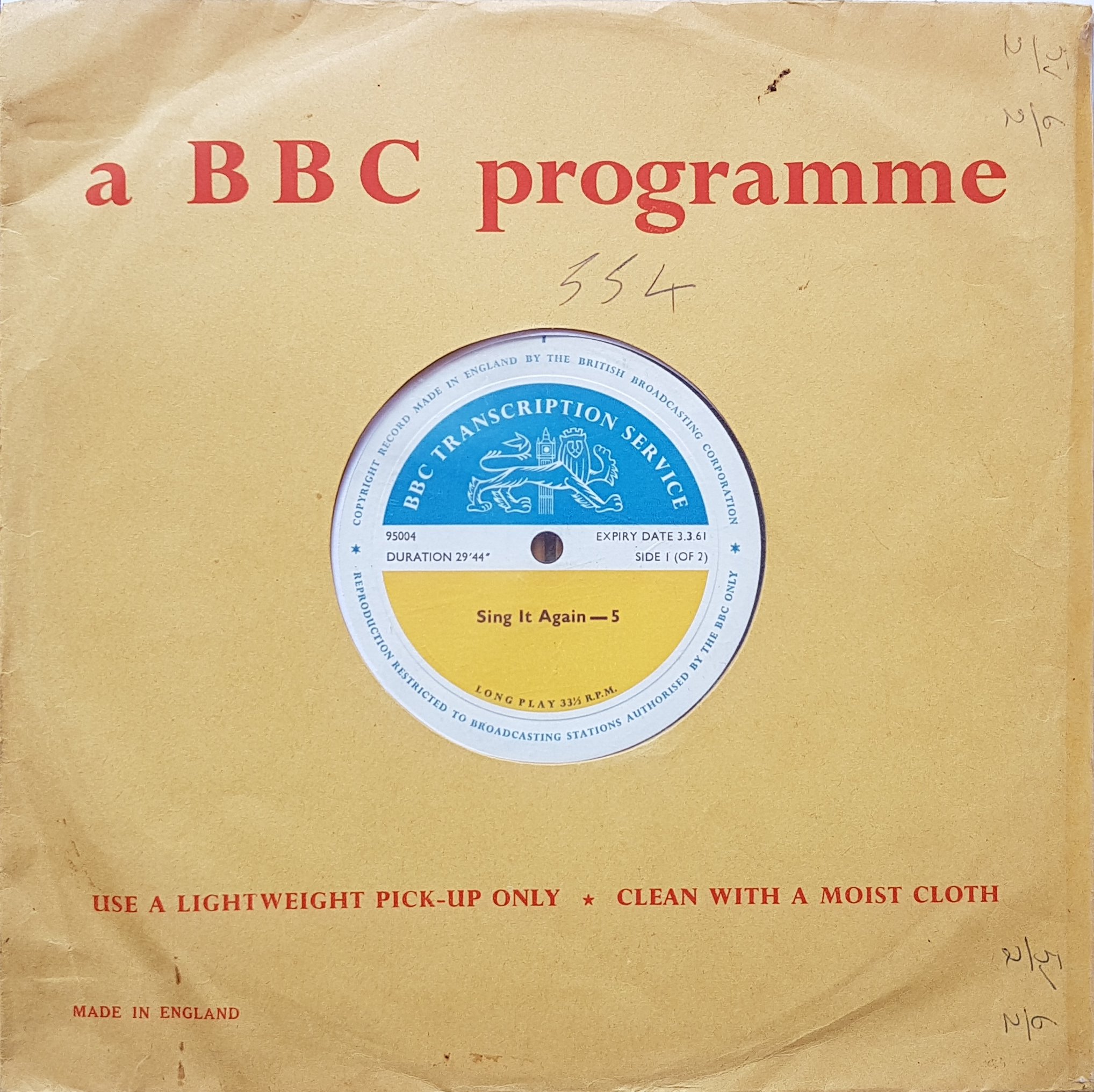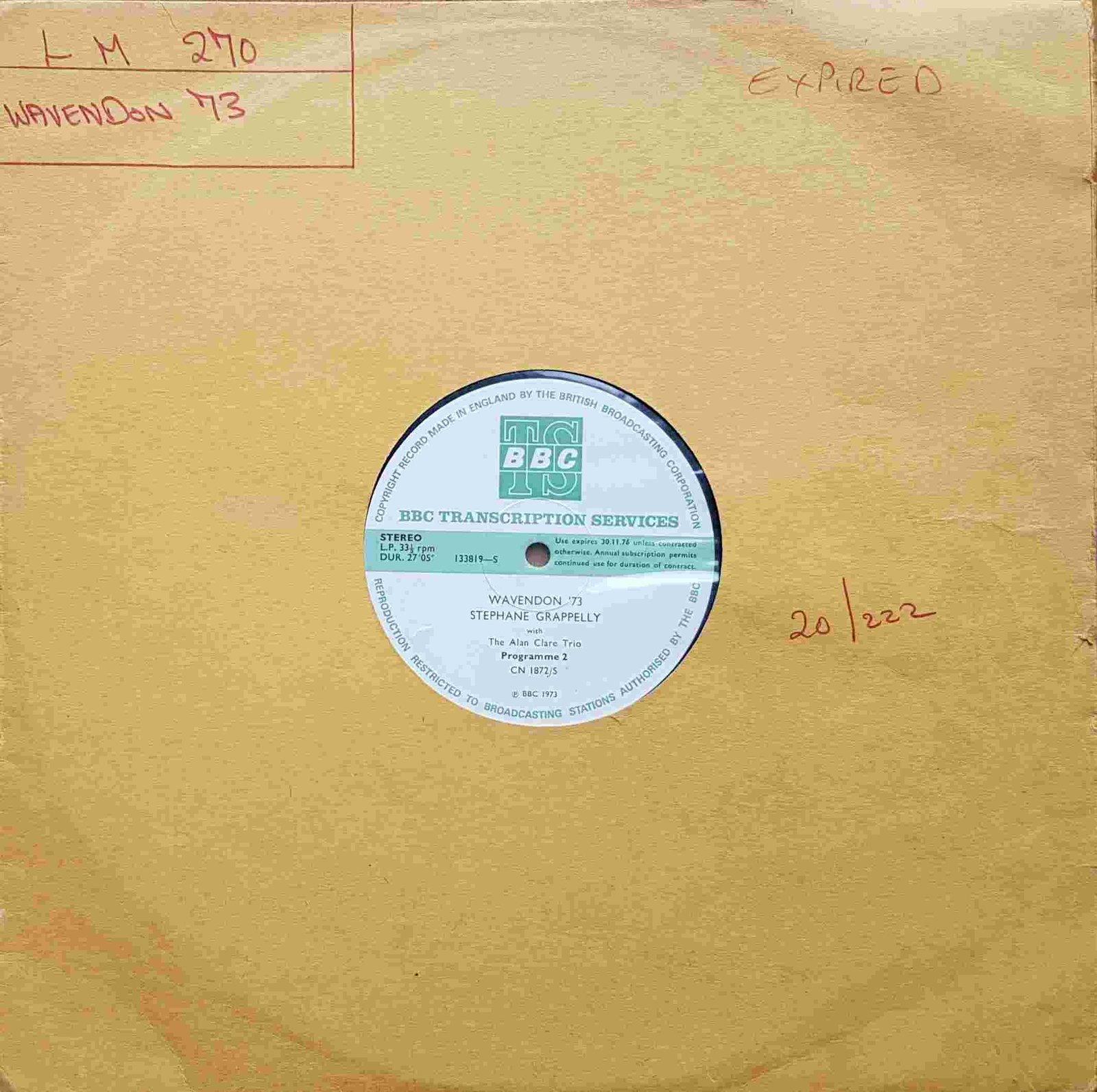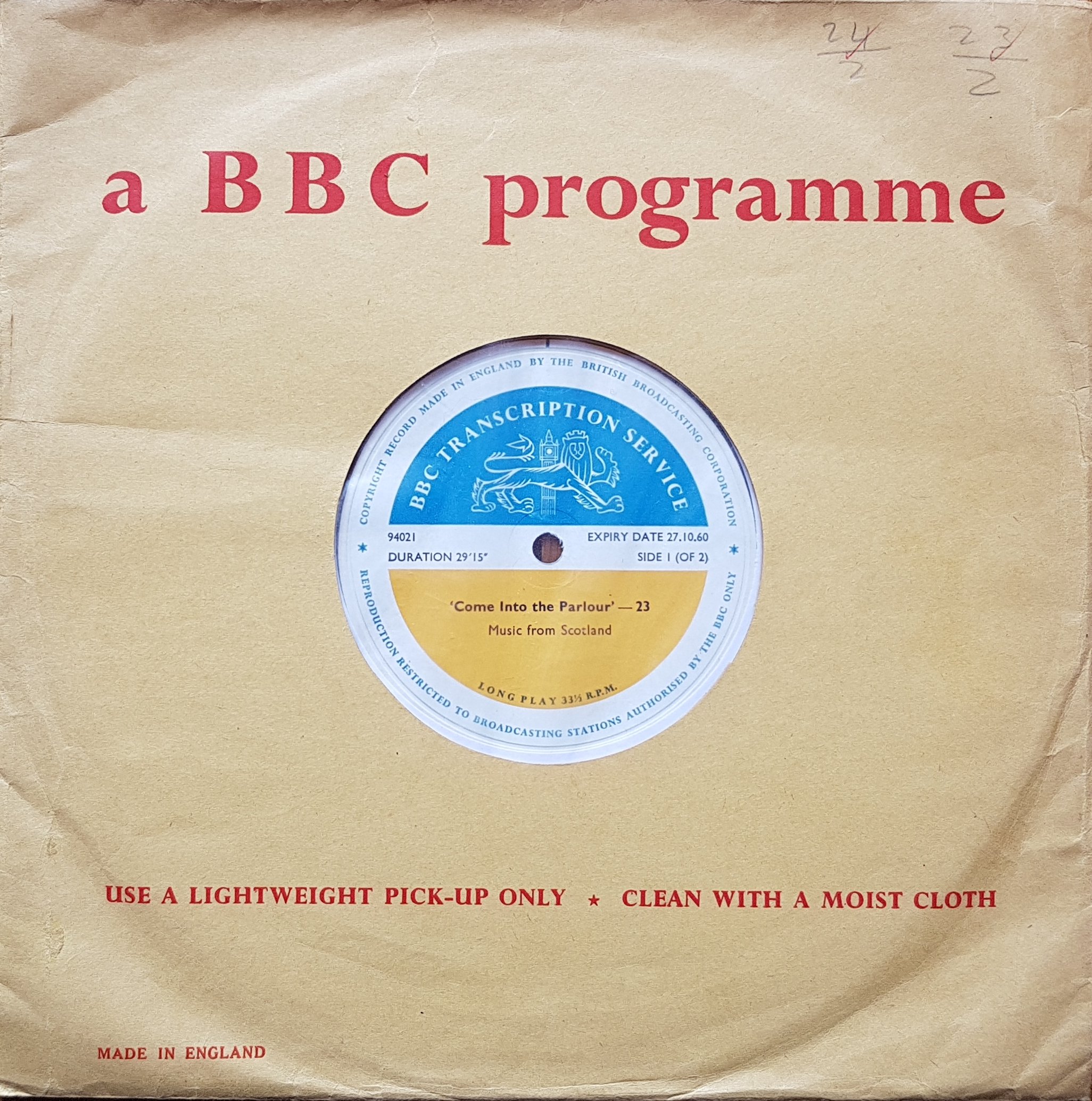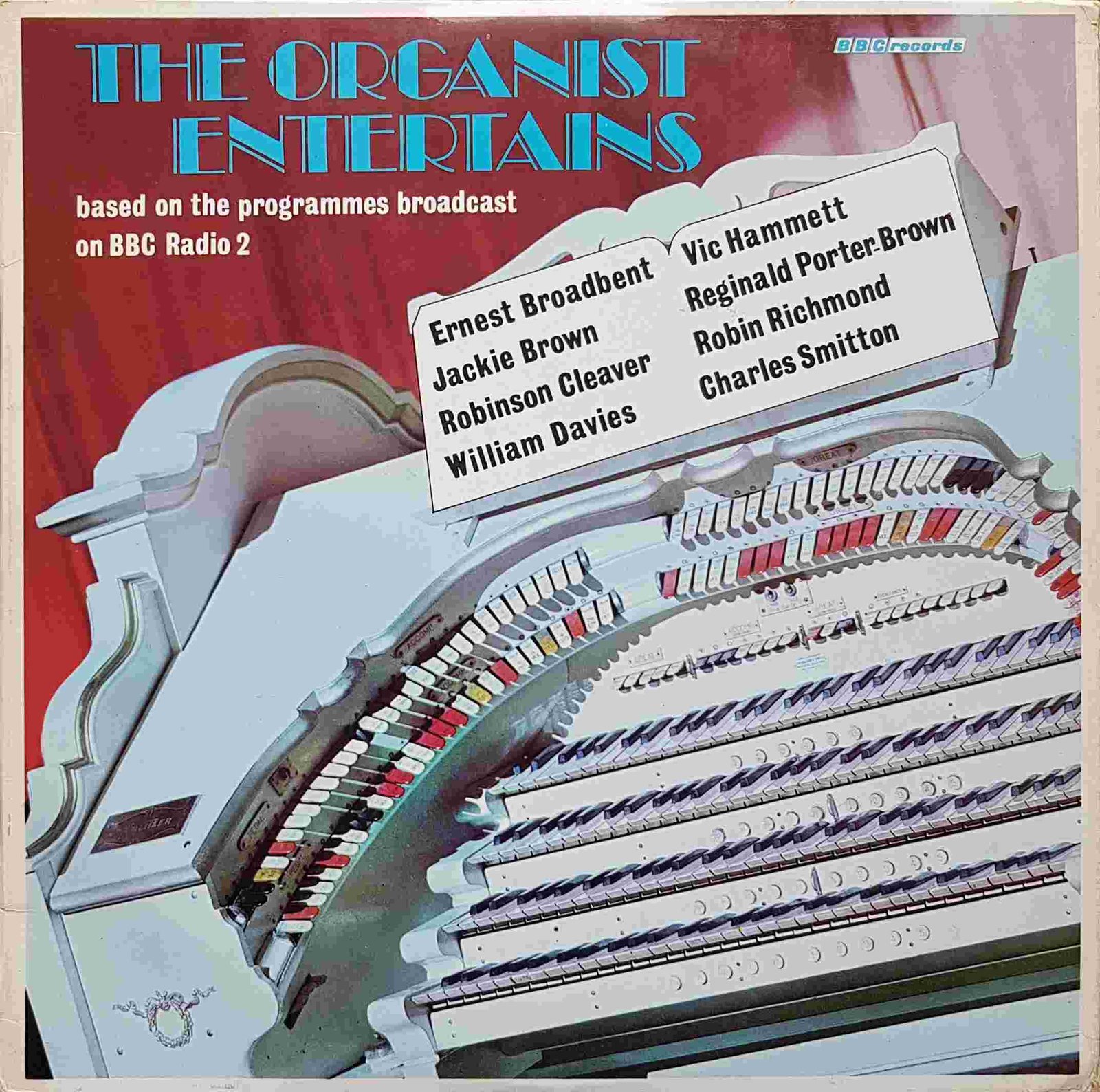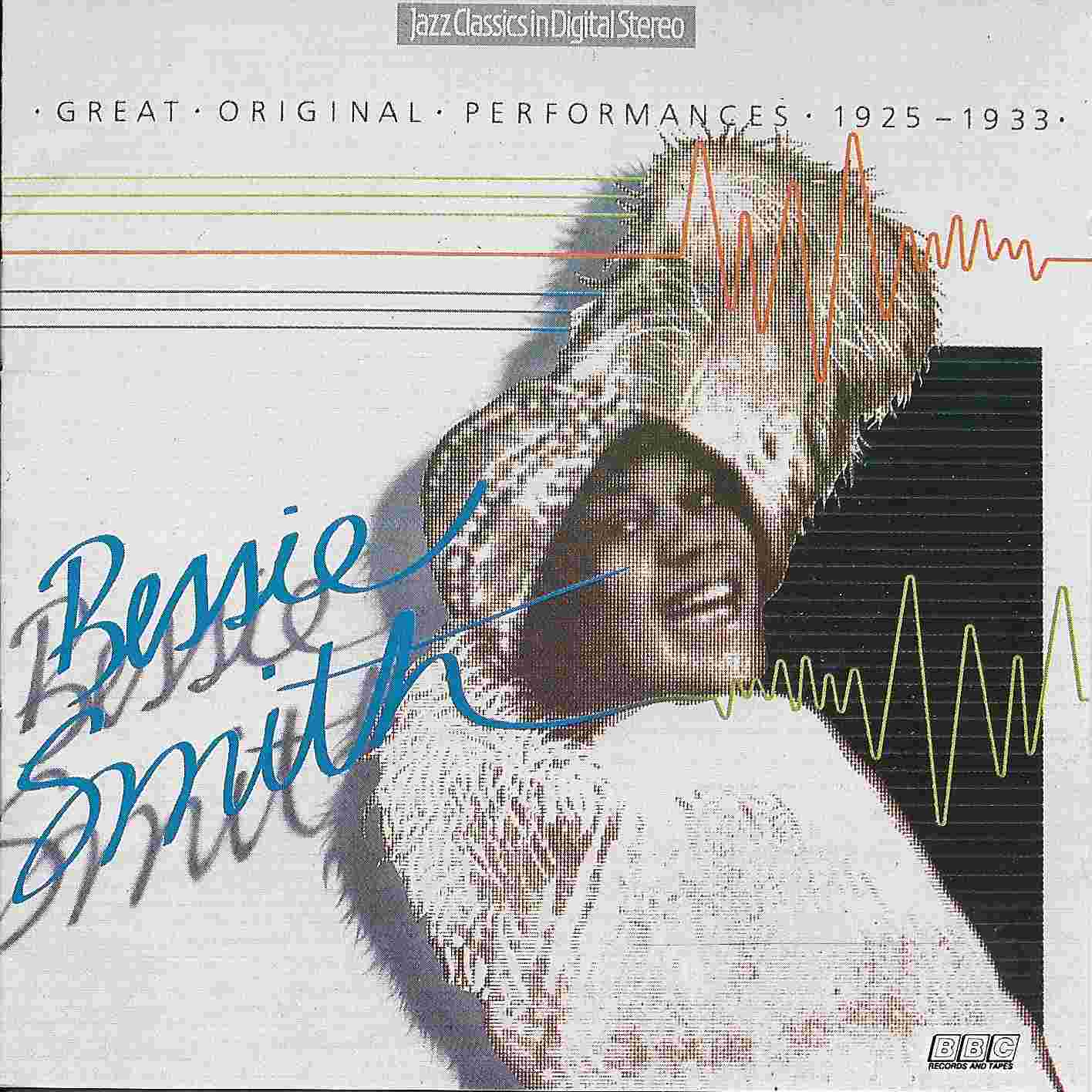 ' My beloved promenaders ' (Sir Malcolm Sargent)
' My beloved promenaders ' (Sir Malcolm Sargent)
Please find the details I have recorded for this release.Release pictures
BBC records label code

Label

Release details
| Detail | Value | ||||||||||
|---|---|---|---|---|---|---|---|---|---|---|---|
| Catalogue number | REC 22 | ||||||||||
| Title | ' My beloved promenaders ' | ||||||||||
| Artist(s) | Sir Malcolm Sargent | ||||||||||
| Cover condition | Near mint | ||||||||||
| Record condition | Near mint | ||||||||||
| BBC records label code | A | ||||||||||
| Item deleted? | Yes | ||||||||||
| Released | 1968 | ||||||||||
| Distributed / printed by | Dawson Rossiter Ltd. London | ||||||||||
| Country of origin | UK  | ||||||||||
| Media type | Primary | ||||||||||
| Media genre | Music View all other tracks listed as Music. | ||||||||||
| Run-off codes / Shop bar codes | RE + 22 + 3 BBC RE + 22 + 4 BBC | ||||||||||
| My rating | ***** | ||||||||||
| Guest rating | ***** To vote, please select one of these buttons: | ||||||||||
| Number have | 1 | ||||||||||
| What type of seller was used? | Not recorded | ||||||||||
| Where can I buy this release? | You may be able to purchase this release from the following websites (others are available!) | ||||||||||
| Amazon | |||||||||||
| Discogs | |||||||||||
| Ebay | |||||||||||
| EIL | |||||||||||
| MusicStack | |||||||||||
| Recordsale | |||||||||||
All release picturesBelow is all the cover (front, back, middle and inserts if applicable) and label pictures I have for this release. |
| Front cover |
|---|
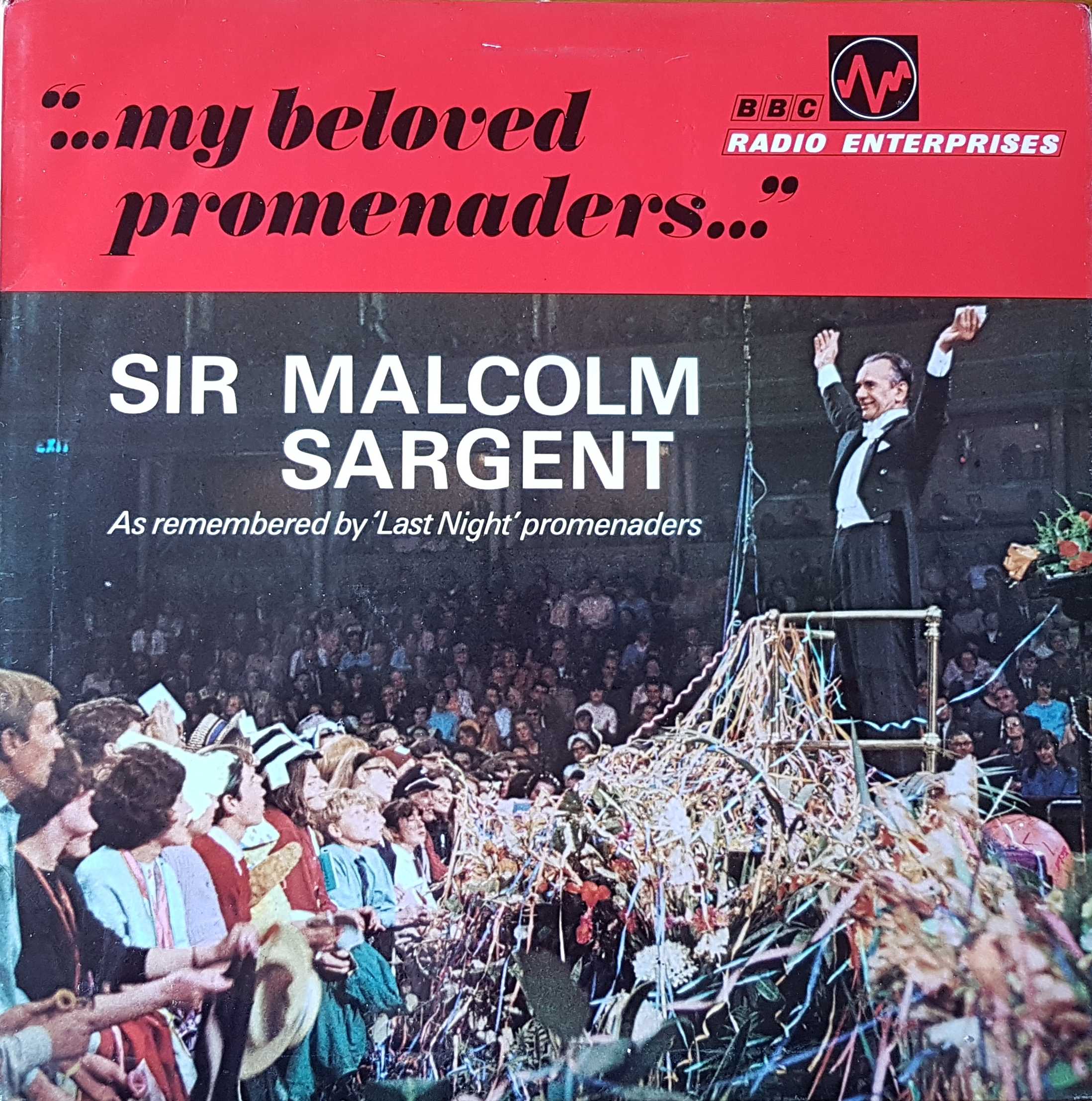 |
| Back cover |
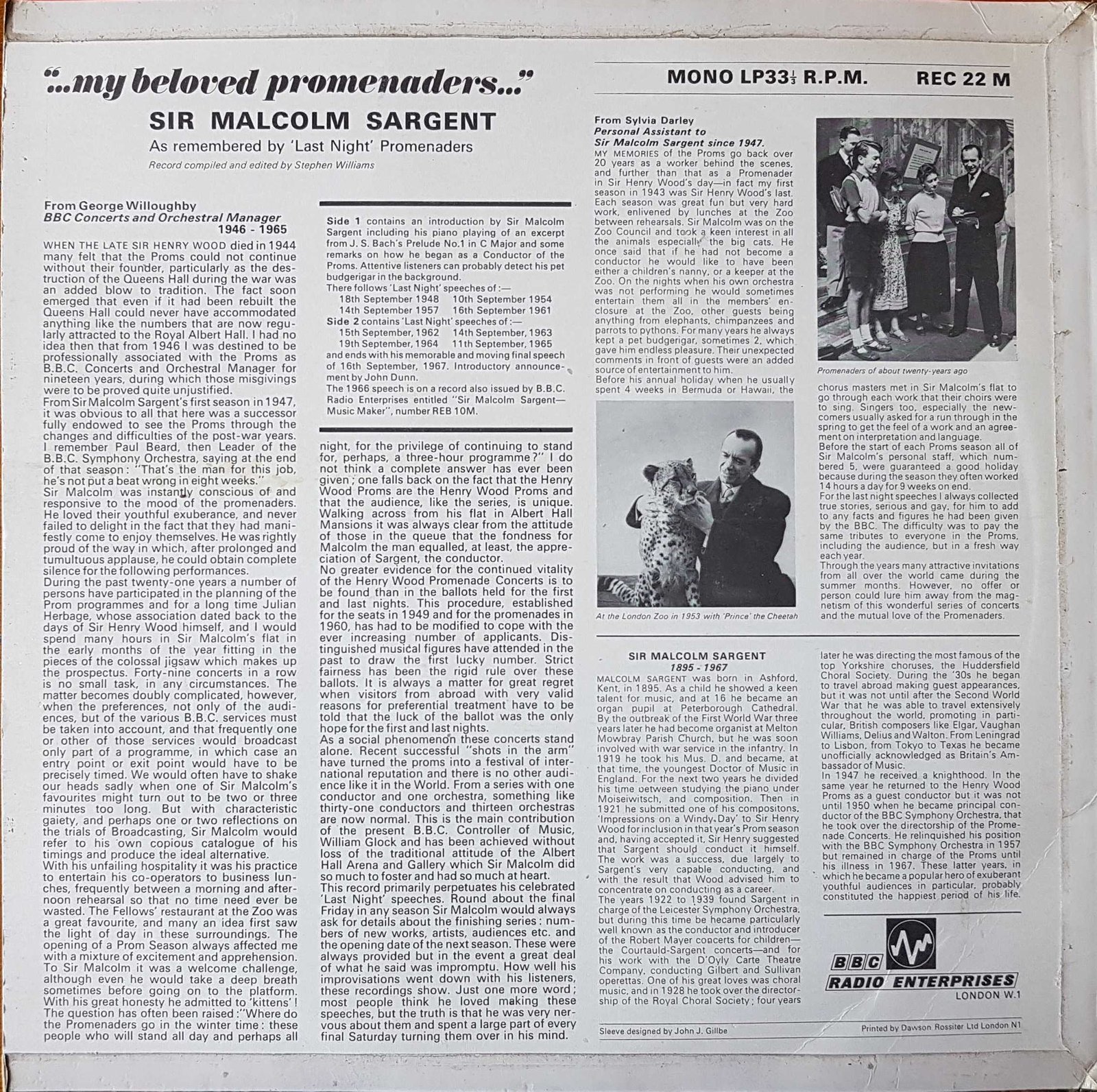 |
| Label |
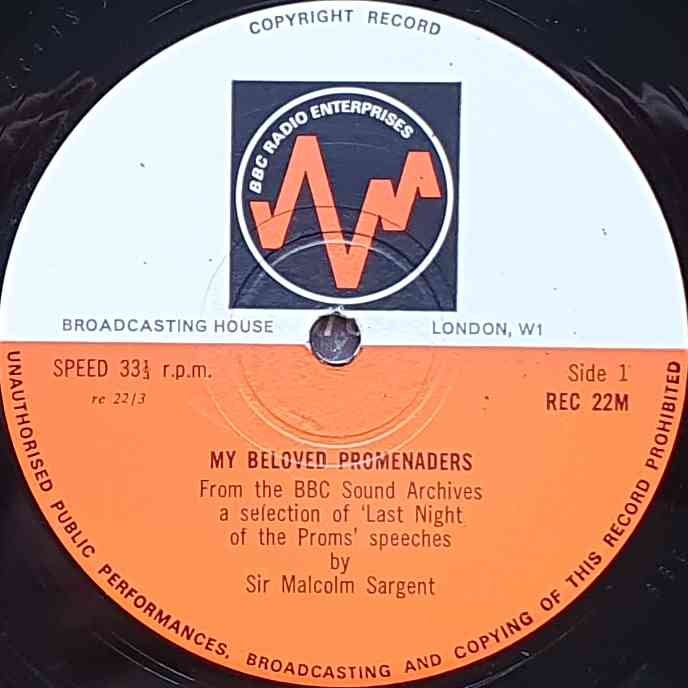 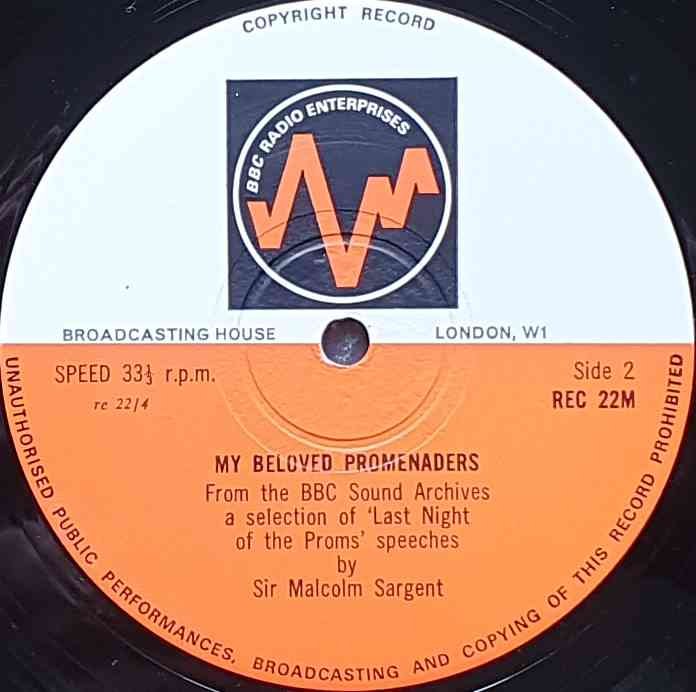 |
TracksBelow is a list of tracks for this release. | |||||||||||
| Side & track | Track and Artist | Length | |||||||||
|---|---|---|---|---|---|---|---|---|---|---|---|
| A1 | Introduction by Sir Malcolm Sargent, including excerpt from J. S. Bach's Prelude no. 1 in C Major [Sir Malcolm Sargent] | 4.56 | |||||||||
| A2 | Last night speach 18th September 1948 [Sir Malcolm Sargent] | 5.45 | |||||||||
| A3 | Last night speach 10th September 1954 [Sir Malcolm Sargent] | 4.14 | |||||||||
| A4 | Last night speach 16th September 1957 [Sir Malcolm Sargent] | 4.30 | |||||||||
| A5 | Last night speach 15th September 1961 [Sir Malcolm Sargent] | 5.37 | |||||||||
| B1 | Last night speach 15th September 1962 [Sir Malcolm Sargent] | 6.05 | |||||||||
| B2 | Last night speach 14th September 1963 [Sir Malcolm Sargent] | 4.28 | |||||||||
| B3 | Last night speach 19th September 1964 [Sir Malcolm Sargent] | 7.14 | |||||||||
| B4 | Last night speach 11th September 1965 [Sir Malcolm Sargent] | 4.50 | |||||||||
| B5 | The memorable and moving final speech on 16th September 1967, with introductory announce by John Dunn [Sir Malcolm Sargent] | 3.54 | |||||||||
| Total length of media 51:33. | |||||||||||
Reviews | ||
| Below is my review for this release and the ratings. | ||
| I have watched the Last Night many times over the years, very British! This collection though seems a bit of an odd set. Very little music is included, it is almost all a collection of speeches which happen to havge been recorded. | ||
| Ratings | ||
|---|---|---|
| My rating | 2 | |
| Guest rating | Current average value is 3. To vote, please select one of these buttons: | |
Extra notes on cover, middle (gatefold sleeve) and any inserts | ||
| The 1966 speech is on a record also issed by the B. B. C. Radio Enterprises entitled ''Sir Malcolm Sargent - Music Maker'', number REB 10M. From George Willoughby BBC Concerts and Orchestral Manager 1946-1965 When the late Sir Henry Wood died in 1944 many felt that the Proms could not contine without their founder, particularly as the destruction of the Queens Hall during the war was an added blow to tradition. The fact soon emerged that even if it had been rebuilt the Queens Hall could never have accommodated anything like the numbers that are now regulatly attracted to the Royal Albert Hall. I had no idea then that from 1946 I was destined to be professionally associated with the Proms as B. B. C. Concerts and Orchestral Manager for nineteen years, during which thos emisgivings where to be proved quite unjustified. From Sir Malcolm Sargent's first season in 1947, it was obvious to all that here was a successor fully endowed to see the Proms through the changes and difficulties of the post-war years. I remember Paul Beard, then Leader of the B. B. C. Symphony Orchestra, saying at the end of that season: ''That's the man for this job, he's not put a beat wrong in eight weeks.'' Sir Malcolm was instantly conscious of and responsive to the mood of the promenaders. He loved their youthful exuberance, and never failed to delight in the fact that they had manifestly come to enjoy themselves. He was rightly proud of the way in which, after prolonged and tumultuous applause, he could obtain complete silence for the following performances. During the twenty-one years a number of persons have participated in the planning of the Prom programmes and for a long time Julian Herbage, whose association dated back to the days of Sir Henry Wood himself, and I would spend many hours in Sir Malcolm's flat in the early months of the year fitting in the pieces of the colossal jigsaw which makes up the prospectus. Forty-nine concerts ina row is no small task, in any circumstances. The matter becomes doubly complicated, however, when the preferences, not only of the audiences, but of the various B. B. C. services must be taken intoa ccount, and that frequently one or other of those services would broadcast only part of a programme, in which case an entry point or exit point would have to be precisely timed. We would often have to shake our headds sadly when one of Sir Malcolm's favourites might turn out to be two or three minutes too long. But with characteristic gaiety, and perhaps one or two reflections on the trials of Broadcasting, Sir Malcolm would refer to his own copious catalogue of his timings and produce the ideal alternative. With his unfailing hospitality it was his practice to entertain his co-operators to business lunches, frequently between a morning and afternoon rehearsal so that no time need ever be wasted. The Fellows' restaurant at the Zoo was a great favourite, and many an idea first saw the light of day in these surroundings. The opening of a Prom season always affected me with a mixture of excitement and apprehension. To Sir Malcolm it was a welcome challenge, although even he would take a deep breath sometimes before going on to the platform. With his great honesty he admitted to 'kittens' ! The question has often been raised: ''Where do the Promenaders go in the winter time : these people who will stand all day and perhaps all night, for the privilege of continuing to stand for, perhaps, a three-hour programme ?'' I do not think a complete answer has ever been given; one falls back on the fact that the Henry Wood Proms are the Henry Wood Proms and that the audience, like the series, is unique. Walking across from his flat in Albert Hall Mansions it was always clear from the attitude of those in the queue that the fondness for Malcolm the man equalled, at least, the appreciation of Sargent, the conductor. No greater evidence for the continued vitality of the Henry Wood Promenade Concerts is to be found than in the ballots held for the first and last nights. This procedure, established for the seats in 1949 and for the promenades in 1960, has had to be modified to cope with the ever increasing number of applicants. Distinguished musical figures have attneded in the past to draw the first lucky number. Strict fairness has been the rigid ruleover these ballots. It is always a matter for great regret when visitors from abroad with very valid reasons for preferential treatment have to be told that the luck of the ballot was the only hope for the first and last nights. As a social phenomenon these concerts stand alone. Recent successful ''shots in the arm'' have turned the proms into a festival of international reputation and there is no other audience like it in the World. From a series with one conductor and one orchestra, something like thirty-one conductors and thirteen orchestras are now normal. This is the main contribution of the present B. B. C. Controller of Music, William Glock and has been achieved without loss of the traditional attitude of the Albert Hall Arena and Gallery which Sir Malcolm did so much to foster and had so much at heart. This record primarily perpetuates his celebrated 'Last Night' speeches. Round about the final Friday in any season Sir Malcolm would always ask for details about the finishing series : number of new works, artists, audiences etc. and the opening date of the next season. These were always provided but in the event a great deal of what he said was impromptu. How well his improvisions went down with his listeners, these recordings show. Just one word; most people think he loved making these speeches, but the truth is that he was very nervous about them and spent a large part of every final Saturday turning them over in his mind. From Silvia Darley Personal Assistant to Sir Malcolm Sargent since 1947 My memories of the Proms go back over 20 years as a worker behind the scenes, and further than that as a Promenader in Sir Henry Wood's day - in fact my first season was in 1943 was Sir Henry Wood's last. Each season was great fun but very hard work, enlivened by lunches at the Zoo between reheasals. Sir Malcolm was on the Zoo Council and took a keen interest in all the animals especially the big cats. He once said that if he had not become a conductor he would live to have been either a children's nanny, or a keeper at the Zoo. On the nights when his own orchestra was not performing he would sometimes entertain them all in the members' enclosure at thwe Zoo, other guests being anything from elephants, chimpanzees and parrots to pythons. For many years he always kept a pet budgerigar, sometimes 2, which gave him endless pleasure. Their unexpected comments in front of guests were an added source of entertainment to him. Before his annual holiday when he usually spent 4 weeks in Bermuda or Hawaii, the chorus masters met in Sir Malcolm's flat to go through each work that their chorus were to sing. Singers too, especially the newcomers usually asked for a run through in the spring to get the feel of a work and an agreement on interpretation and language. Before the start of each Proms season all of Sir Malcolnm's personal staff, which numbered 5, were guaranteed a good holiday because during the season they often worked 14 hours a day for 9 weeks on end. For the last night speeches I always collected true stories, serious and gay, for him to add to any facts and figures he had been given by the BBC. The difficulty was to pay the same tributes to everyone, but in a fresh way each year. Through the years many attractive invitations from all over the world came during the summer months. However, no offer or person could lure him away from the magnetism of this wonderful series of concerts and the mutual love of the Promenaders. SIR MALCOLM SARGENT 1895-1967 Malcolm Sargent was born in Ashford, Kent, in 1895. As a child he showed a keen talent for music, and at 16 he became an organ pupil at Peterborough Cathedral. By the outbreak of the First World War three years later he had become organist at Melton Mowbray Parish Church, but he was soon involved with war service in the infantry. In 1919 he took his Mus. D. and became, at that time, the youngest Doctor of Music in England. For the next two years he divided his time between studying the piano under Moiseiwitsch, and composition. Then in 1921 he submitted one of his compositions, 'Impressions on a Windy Day' to Sir Henry Wood for inclusion in that year's Prom season and, having accepted it, Sir Henry suggested that Sargent should conduct it himself. The work wa a success, due largely to Sargent's very capable conducting, and with the reslt that Wood advised him to concentrate on conducting as a career. The years 1922 to 1939 found Sargent in charge of the Leicester Symphony Orchestra, but dutring this time he became particularly well known as the conductor and introducer of the Robert Mayer concerts for children - the Courtauld-Sargent concerts-and for his work with the D'Oyly Carte Theatre Company, conducting Gilbert and Sullivan operattas. One of his great loves was choral music, and in 1928 he took over the directorship of the Royal Choral Society; four years later he was directing the most famous of the top Yorkshire choruses, the Huddersfield Choral Society. During the '30s he began to travel abroad making guest appearances, but it was not until after the Second World War that he was able to travel extensively throughout the world, promoting in particular, British composers like Elgar, Vaughan Williams, Delius and Walton. From Leningrad to Lisbon, from Tokyo to Exas he became unofficially acknowledged as Britain's Ambassador of Music. In 1947 be received a knighthood. In the same year he returned to the Henry Wood Proms as a guest conductor but it was not until 1950 when he became principal conductor of the BBC Symphony Orchestra, that he took over the directorship of the Promenade Concerts. he relinquished his position with the BBC Symophony Orchestra in 1957 but remained in charge of the Proms until his illness in 1967. These latter years, in which he became a popular hero of exuberant youthful audiences in particular, probably constituted the happiest period of his life. | ||
Further information | ||
| BBC Radio Enterprises Ltd and BBC Enterprises Ltd, predecessors of BBC Worldwide / BBC Worldwide Ltd., the BBC's commercial arm. Formed 1968 and 1979 respectively, they were a subsidiary wholly owned by the BBC and merged into BBC Worldwide in 1995. In that time, there were companies set up within or structured brands as part of the company to deal with separate parts of the business, e.g. BBC Records for recorded audio. Sometimes written as BBC Enterprise Ltd.
The items shown here are from the "main" BBC Records and Tapes library covering a wide secletion of genres from themes, comedy dramas and others, depending on which format you have selected. | ||
StatisticsHere are some statistics about this page. |
| This page was last updated on 08-01-2023 at 23:29:01 UK local time. |
This record has been seen 1026 times since 20th May, 2017. |
Other releases you might be interested inBelow are some other releases which are related to REC 22 ' My beloved promenaders ' based on its genre. |
© 2002-2024 Mike Everitt.
Last modified: 08-01-2023 at 23:29:01 UK local time
Last modified: 08-01-2023 at 23:29:01 UK local time
